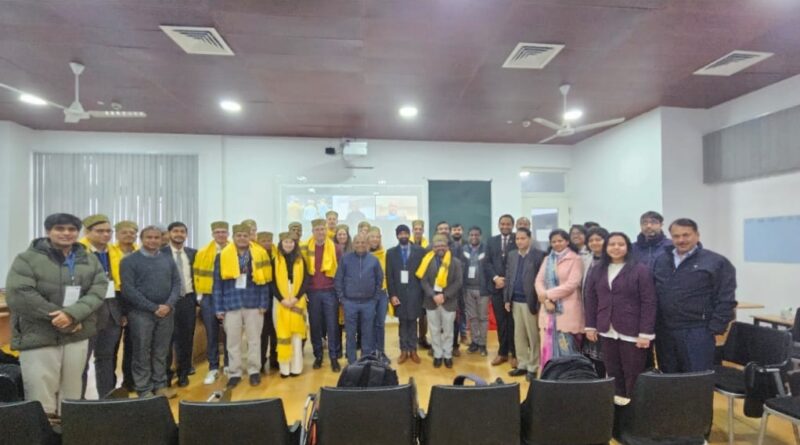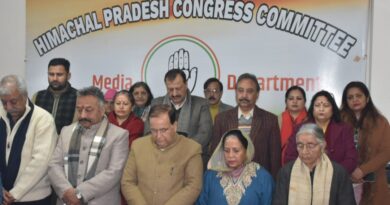IIT Mandi Hosts Indo-German Workshop on Engineering for Sustainable and Resilient Development
The Indian Institute of Technology Mandi, in collaboration with Leibniz University Hannover organized a three-day workshop on ‘Engineering for Sustainable and Resilient Development’ from 18th to 20th January 2024. The workshop was sponsored by Indo-German Science and Technology Centre.
The primary objective of the workshop was to facilitate discussions on sustainable and resilient infrastructures. By fostering collaboration between faculty members at IIT Mandi and their counterparts in Germany, the workshop aimed to share knowledge and resources to promote sustainable development aligned with the goals of both countries.
Highlighting the importance of the workshop, Dr. Deepak Swami, Associate Professor, School of Engineering, IIT Mandi, said, “The workshop serves as a platform to collaboratively address the pressing challenges posed by climate change. By sharing expertise and resources, we aim to drive sustainable development in line with the goals of both India and Germany.”
The event addressed six sub-themes, including resilient housing, green chemistry, sustainable environments, digital energy transformation, energy systems, and changing people’s attitudes towards climate change.
The workshop saw participation from 11 German experts representing renowned universities and industries, along with 16 Indian participants from prestigious institutes and industries. The diverse expertise contributed to discussions on innovative solutions related to resilient infrastructure, energy storage and transmission, and creating a sustainable environment through bilateral projects, faculty, and student exchanges.
The anticipated outcomes from the workshop include innovative solutions to the problems of resilient infrastructure, energy storage and transmission and sustainable environment through bilateral projects, faculty, and student exchanges.
Furthermore, the workshop aimed to explore the psychological aspect of changing people’s attitudes towards climate change through visualization, feedback, and peer influence.



